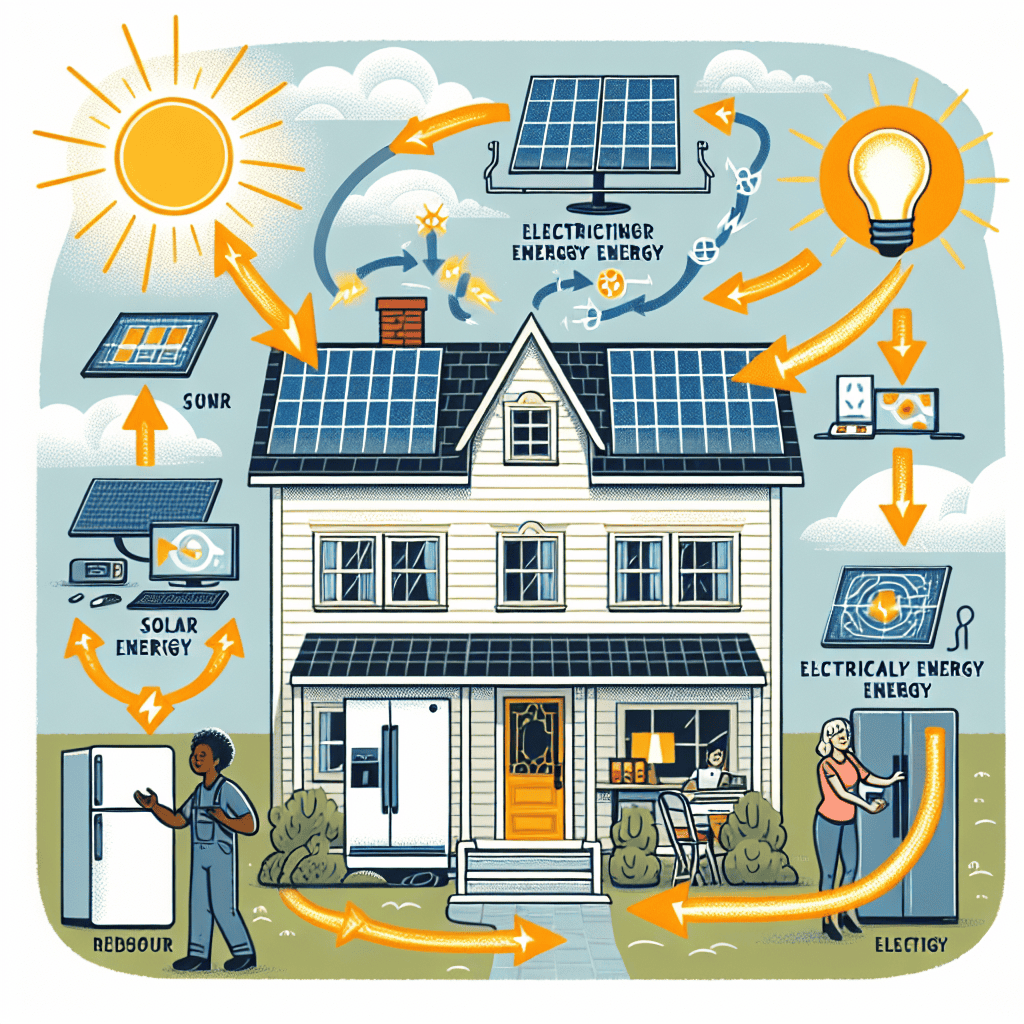As the world increasingly focuses on sustainable practices to combat climate change, renewable energy sources have risen to prominence. Among these, solar energy stands out as a great solution, offering a path to reduce reliance on fossil fuels. Solar panels harness the power of the sun, providing clean, renewable energy that minimizes environmental impact. Let’s delve deeper into what solar energy is and how rooftop solar panels play a crucial role in its utilization.
What is Solar Energy?
Solar energy is the radiant light and heat emitted by the sun, harnessed through various technological means to generate electricity or provide heat. This energy is captured and converted into usable power using solar panels. Through the photovoltaic effect, solar radiation is directly transformed into electricity, allowing homeowners and businesses to tap into this renewable resource.

The Science Behind Solar Panels
At the core of solar panels are photovoltaic (PV) cells, which are the primary technology used to convert sunlight into electricity. When sunlight hits a PV cell, it excites electrons within the cell’s semiconductor material, creating an electrical current. This process is known as the photovoltaic effect. Solar panels, composed of many such cells, work together to generate electricity for residential or commercial use.
Types of Solar Energy Systems
Solar energy systems come in various forms, each utilizing the sun’s power differently. Photovoltaic systems, where solar panels directly convert sunlight into electricity, are ideal for residential and small-scale use. Solar thermal systems capture solar energy for heating applications, whereas concentrated solar power systems use mirrors to focus sunlight, generating thermal energy to produce electricity on a larger scale. However, for most homes, residential photovoltaic systems are the most practical and cost-effective choice.
Benefits of Rooftop Solar Panels
Installing rooftop solar panels offers significant benefits for both the environment and homeowners. Environmentally, they help reduce the carbon footprint by decreasing reliance on non-renewable energy sources. Economically, solar panels offer potential savings on electricity bills, as homeowners can generate their own power and even sell excess energy back to the grid.
Also Read: How to Make a Solar Panel with Aluminum Foil: A Simple Guide
Installation and Maintenance
When considering solar panel installation, several factors need to be assessed, such as roof orientation, shading, and available space, to ensure efficient energy production. Professional installation is recommended to optimize these elements. Once installed, maintenance is minimal but necessary, including regular cleaning and periodic inspections to ensure the panels are functioning at peak efficiency.
Challenges and Limitations
Despite the advantages, rooftop solar panels come with challenges. Initial installation costs can be high, although tax incentives and rebates often offset these expenses. Moreover, the return on investment may vary based on location, energy prices, and sunlight exposure. Technological limitations and roof size may also restrict solar panel installation in certain areas.
Future of Solar Energy
The future of solar energy is promising, with ongoing innovations in solar panel technology making them more efficient and affordable. As awareness grows, solar energy will likely play an increasingly significant role in sustainable development, contributing to the global transition towards renewable energy usage.
Conclusion
Solar panels have the potential to revolutionize energy consumption by providing a sustainable and efficient alternative to traditional power sources. Their environmental and economic impacts are profound, offering a viable solution for reducing carbon footprints and saving on energy costs. Considering this, adopting solar solutions for residential use is a forward-thinking step toward a more sustainable future.